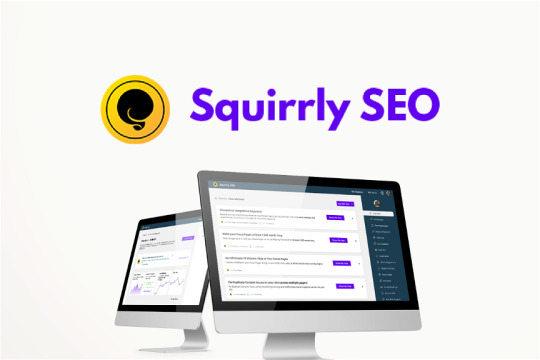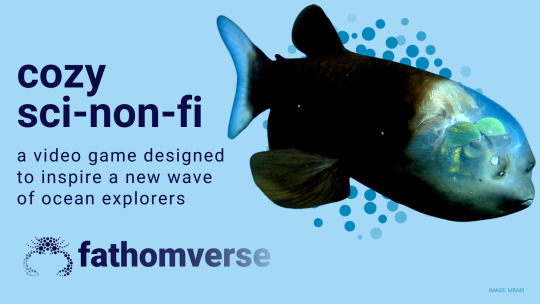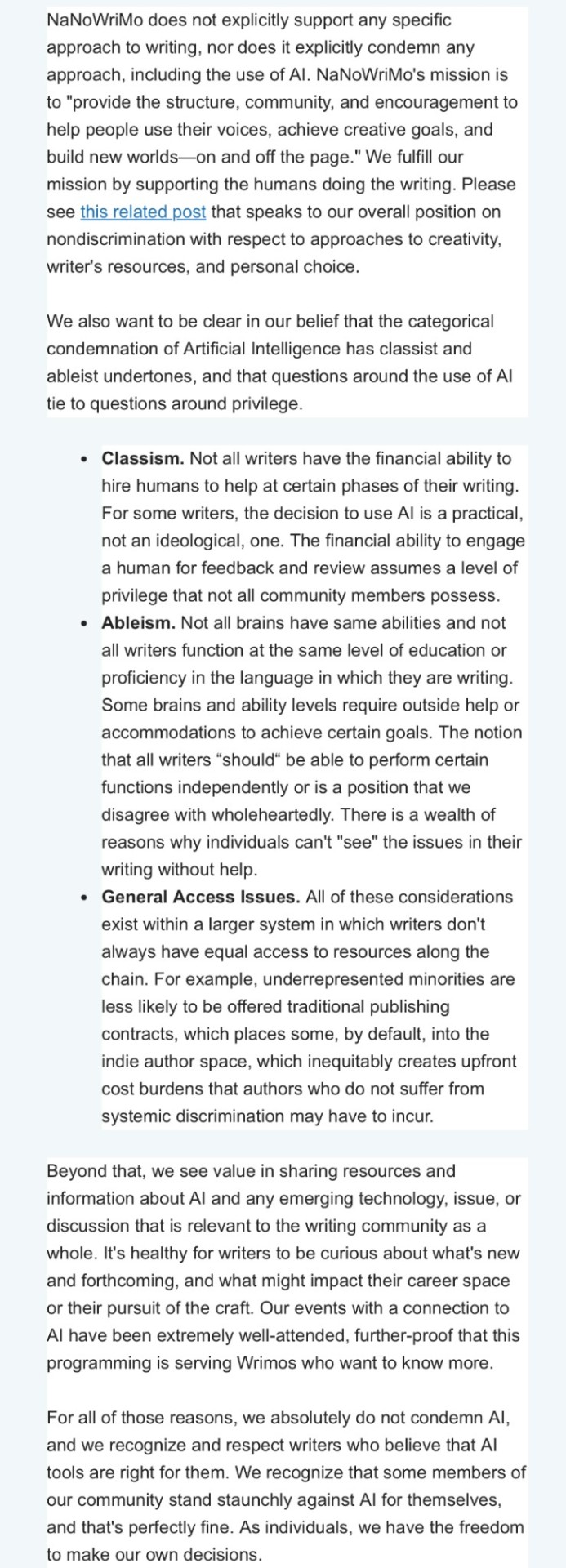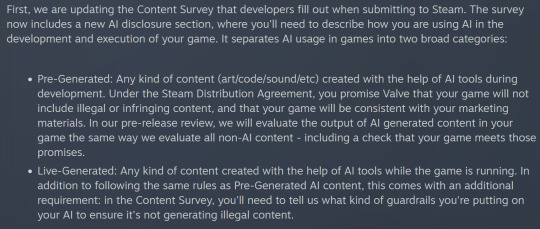#Store AI review
Text
Unlocking the Power of AI for E-commerce Success: Store AI Review
Introduction
In today's rapidly evolving digital landscape, the e-commerce industry is experiencing unprecedented growth, with a staggering worth of $6.3 billion. Entrepreneurs and marketers are eager to claim their share of this lucrative market, but the process of creating and managing successful online stores can be challenging, requiring technical skills, design expertise, and effective marketing strategies. However, a groundbreaking solution has emerged – Store AI, the first-to-market AI app powered by Google Bard 5.9. This revolutionary platform instantly creates and publishes unlimited AI web stores, Android store apps, and iOS store apps, allowing users to tap into the vast potential of the $78 billion Android industry and the $240 billion iOS industry.
Try Store AI With My Premium Bonuses

Store AI Overview
Vendor:Clicks Botz
Product:Store AI
Launch Date: 2023-Jul-18
Launch Time: 11:00 EDT
Front-End Price: $17
Niche : software
Support: Effective support
Refund: 30-Day Money Back Guarantee
Recommendation: Highly Recommended!
Official Website: Click here
Bonuses: Me Reviews Exclusive Bonuses (view only)
Store AI OTOs:
Store A.I FE
>>>CLICK HERE TO GRAB IT<<<
Store AI PRO
>>>CLICK HERE TO GRAB IT<<<
Store AI Unlimited
>>>CLICK HERE TO GRAB IT<<<
Store AI DFY
>>>CLICK HERE TO GRAB IT<<<
Store Ai Traffic
>>>CLICK HERE TO GRAB IT<<<
Store AI Marketing Kit
>>>CLICK HERE TO GRAB IT<<<
Store AI Agency
>>>CLICK HERE TO GRAB IT<<<
Store AI Reseller
>>>CLICK HERE TO GRAB IT<<<
Simplifying E-commerce with Artificial Intelligence
Store AI simplifies the e-commerce process by providing users with the ability to create premium e-commerce stores for different devices and languages with just a click. The platform eliminates the need for prior tech skills, designing knowledge, or marketing expertise, making it accessible to everyone. With Store AI, entrepreneurs can maximize their affiliate commissions by promoting unlimited trending products from leading e-commerce platforms such as Amazon, Ali Express, eBay, and more.
Breaking Free from Third-Party Dependency
One of the standout features of Store AI is its ability to create premium e-commerce stores that achieve high rankings on Google without relying on third-party platforms. Users can say goodbye to age-old stores that fail to gain attention and instead let artificial intelligence handle everything, from product selection to search engine optimization. This ensures that their stores attract hordes of targeted traffic and generate passive affiliate commissions.
The Three-Step Process to Success
Store AI's user-friendly interface and intuitive three-step process make it easy for anyone to create profitable e-commerce stores using artificial intelligence:
Step 1:
Log In – Users simply log in to the Store AI platform and provide the required details without any restrictions.
Step 2:
Give Commands – By entering a few commands, users can let the AI technology create their first store with top products in just a few clicks. The AI algorithm ensures that trending products are selected, allowing users to capitalize on current market demands.
Step 3:
Publish & Profit – Once the store is created, users can start selling top trending products to a global audience and begin profiting immediately. Store AI automates the entire process, freeing up time for users to focus on growing their business without the hassle of manual work or hiring expensive freelancers.
Try Store AI With My Premium Bonuses
Unleashing the Potential of Store AI
By combining AI technology, e-commerce, and affiliate marketing, Store AI empowers users to dominate their competition and attract a massive customer base. The growing worth of the e-commerce industry further emphasizes the importance of leveraging tools like Store AI. With projections indicating that 24% of retail purchases will take place online by 2026, and e-commerce sales expected to grow by 10.4% in 2024, the potential for success in this industry is immense.
Pros of Store AI:
Easy to Use:
Store AI is designed to be user-friendly, allowing both newcomers and experienced users to create e-commerce stores without prior technical skills or design experience.
Cost-effective:
By using Store AI, users can save over $5,000 annually by eliminating the need for expensive third-party platforms. This all-in-one solution provides everything necessary to create successful e-commerce stores at a fraction of the cost.
Maximum Exposure:
With Store AI, users can gain more exposure for their offers and dominate their competition. The AI-powered technology optimizes stores for search engines, driving organic traffic and boosting rankings.
Expert Guidance and Support:
Store AI offers premium 24/7 expert guidance and support, ensuring that users receive the assistance they need throughout their journey.
Money-Back Guarantee:
Store AI is backed by a 30-day money-back guarantee, providing users with peace of mind. If they are not satisfied with their purchase, they can request a refund and receive their money back promptly.
Try Store AI With My Premium Bonuses
Cons of Store AI:
Reliance on AI:
While Store AI automates many processes, users need to trust the AI algorithm to select trending products and optimize their stores. There may be instances where human intervention or customization is desired.
Limited Customization:
As an AI-driven platform, Store AI may have limitations in terms of customizing the store's appearance and layout. Users who require extensive customization options may find it restrictive.
Don't Miss Out on the Store AI Advantage
In conclusion, Store AI is a game-changer in the e-commerce industry, simplifying the process of creating profitable e-commerce stores, Android store apps, and iOS store apps. With its user-friendly interface, advanced AI technology, and proven success in any niche, Store AI empowers entrepreneurs and marketers to tap into the multi-trillion dollar e-commerce industry and achieve maximum results. Seize the opportunity to dominate your competition and take your business to new heights with Store AI.
Try Store AI With My Premium Bonuses
#Store AI#Store AI review#Store AI oto#Store AI scam#Store AI legit#Store AI download#Store AI upsells#Store AI bonus
0 notes
Text
youtube
Welcome to the GPT Store, where innovation meets imagination! Nestled within the bustling heart of the digital marketplace, the GPT Store stands as a beacon of cutting-edge technology and limitless creativity. As you step into our virtual emporium, prepare to embark on an extraordinary journey through the realms of artificial intelligence and linguistic prowess.
With its sleek interface and intuitive design, the GPT Store offers a seamless shopping experience like no other. Whether you're a seasoned developer, a curious enthusiast, or an avid explorer of the digital frontier, there's something here for everyone. From advanced AI models to bespoke language tools, our vast collection caters to a diverse array of needs and interests.
At the heart of the GPT Store lies our flagship product: the renowned GPT series. Powered by state-of-the-art deep learning algorithms and trained on vast swathes of data, these AI models represent the pinnacle of natural language processing. Whether you seek assistance with writing, coding, or creative endeavors, our GPT models are your ultimate companions in unlocking new possibilities.
But the GPT Store is more than just a repository of AI models. It's a vibrant marketplace where ideas flourish and innovation thrives. Browse through our curated selection of plugins, extensions, and add-ons, each crafted to enhance your AI experience. From language translation tools to sentiment analysis plugins, these resources are designed to augment your productivity and unleash your creativity.
So, whether you're a seasoned AI aficionado or a curious newcomer, come discover the wonders of the GPT Store. Unleash your imagination, explore the limitless potential of artificial intelligence, and embark on a journey that transcends the boundaries of what's possible. Welcome to the future of innovation.
GPT Store: How To Use and Make Money Online 2024
#gpt store#chatgpt store#gpt store explained#gpt store openai#chatgpt#chatgpt store money#chat gpt#make money online#how to make money with gpt store#how to make money from gpt store#gpt store ai#open ai store#gpt store guide#gpt store make money#gpt store launch#gpt store review#gpt store exposed#gpt store exposed review#gpt store update#openai gpt store#make money online 2024#how to make money online 2024#limitless tech 888#gpt app store#Youtube
0 notes
Text
youtube
Welcome to the GPT Store, where innovation meets imagination! Nestled within the bustling heart of the digital marketplace, the GPT Store stands as a beacon of cutting-edge technology and limitless creativity. As you step into our virtual emporium, prepare to embark on an extraordinary journey through the realms of artificial intelligence and linguistic prowess.
With its sleek interface and intuitive design, the GPT Store offers a seamless shopping experience like no other. Whether you're a seasoned developer, a curious enthusiast, or an avid explorer of the digital frontier, there's something here for everyone. From advanced AI models to bespoke language tools, our vast collection caters to a diverse array of needs and interests.
At the heart of the GPT Store lies our flagship product: the renowned GPT series. Powered by state-of-the-art deep learning algorithms and trained on vast swathes of data, these AI models represent the pinnacle of natural language processing. Whether you seek assistance with writing, coding, or creative endeavors, our GPT models are your ultimate companions in unlocking new possibilities.
But the GPT Store is more than just a repository of AI models. It's a vibrant marketplace where ideas flourish and innovation thrives. Browse through our curated selection of plugins, extensions, and add-ons, each crafted to enhance your AI experience. From language translation tools to sentiment analysis plugins, these resources are designed to augment your productivity and unleash your creativity.
For those seeking personalized solutions, the GPT Store offers bespoke services tailored to your specific requirements. Whether you need custom model training, API integration, or specialized consultancy, our team of experts is here to help you realize your vision. With their unparalleled expertise and dedication to excellence, they'll guide you every step of the way, ensuring that your AI journey is both rewarding and transformative.
GPT Store: How To Use and Make Money Online 2024
#gpt store#chatgpt store#gpt store explained#gpt store openai#chatgpt#chatgpt store money#chat gpt#make money online#how to make money with gpt store#how to make money from gpt store#gpt store ai#open ai store#gpt store guide#gpt store make money#gpt store launch#gpt store review#gpt store exposed#gpt store exposed review#gpt store update#openai gpt store#make money online 2024#how to make money online 2024#limitless tech 888#gpt app store#Youtube
0 notes
Text
Squirrly SEO: Elevate Your WordPress Site with Best AI-Driven Rankings
Squirrly SEO, the ultimate SEO solution that provides you with the best in AI-driven goals for top rankings, may help you unlock the full potential of your WordPress website.
Are you worried that despite having such a good website and such a good brand, your website is not getting any traffic? Many websites are trying to get everyone’s attention, and this is where Search Engine Optimization…

View On WordPress
#pros and cons squirrly seo#seo plugin by squirrly seo#squirrly seo#squirrly seo affiliate program#squirrly seo best appsumo#squirrly seo best lifetime deal#squirrly seo best wordpress seo plugin#squirrly seo download#squirrly seo improve seo with ai guidance#squirrly seo login#squirrly seo pricing plans#squirrly seo review#squirrly seo the best store of entrepreneurs
0 notes
Text
Pro eCom: World’s First Voice Activated AI eCom Store Builder!
Pro eCom is The World’s First Voice Activated AI Store Builder. It can create stunning Amazon eCommerce stores with customizable themes for both physical and digital products in just 5 minutes. It can handle all aspects of store creation without requiring any coding, writing, or design. With a simple voice command, the system generates compelling product descriptions, captivating content, and realistic product images. Additionally, the built-in SEO ensures that the store can effectively market itself without the user’s intervention.

#Pro eCom#Pro eCom review#voice activated ai#voice activated ai eCom#ecommerce#ecom#ecom pro#ecommerce pros#ecommerce cons#online purchase#overview of Pro eCom#woocommerce#Pro eCom benefits#final opinion of Pro eCom#online business form home#amazon.com#amazon store#amazon sales#Pro eCom voice activated ai#build amazon affiliate stores
0 notes
Text
Okay so for the last month or so, I’ve gotten 6 dm’s mostly from tumblr accusing me of using ai, asking for prompts for my style, etc. And a random 1 star review on my online store saying my prints are ai.
Guys.
If you do literally 10 seconds of research you’d get your answer.
I post process images/videos on the regular. I plop unfinished things on patreon and ko-fi on the regular. There’s like books and whatever else out there that I drew that’ve existed way before august 2022.
Heck I’m doing real physical paintings now with a partial reason being to show that a person is making these things.
I know these are just low effort drive-by’s but it’s starting to get annoying. Please just, idk, Google a persons name or scroll for like 5 more seconds and you’ll be able to figure it out.
4K notes
·
View notes
Text
Like... when I'm pointing out that a recipe image is AI, the purpose is not to shame them for posting AI, because even people who are familiar with the tells will sometimes fall for it.
I want you to have reasonable expectations about your food.
Because when I see this:

I remember this:

Which was a full decade prior to AI-based misinformation, and just how many people were pissed off that the Pinterest post misled them.
And even more-working in a craft store during the Pinterest heyday:
"We want to make this." Shows a picture of:
-a marimo moss ball terrarium in a light bulb.
-a resin-treated natural wooden shelf with glow in the dark resin in the cracks
-a really complex diorama made using museum grade resin and hand-painted figures by a miniatures artist
...to name a few.
"I'm sorry, but we do not carry (unfinished wood pieces, light reactive resin powders, live marimo moss balls, museum grade resin). Is there a tutorial attached with a materials list? No? I'm sorry, we don't have those. You can make something like this with what we have, but it won't turn out the same as in the photo. You want it exactly like the photo? I'm sorry, we can't special order these items, they're not featured on our list of vendors. I'm sorry, no, I don't know where to get them. Oh, you want me to walk you through the steps of making it since there's no tutorial? I can really only guess, but it looks like... oh, you want someone who knows for sure? I'm sorry, but no one here is terribly familiar with the process. You might see if you can reverse image search and find the source of the image. You say you want to speak to my manager? You say I'm being rude to you? You say I should be going out of my way to make you happy? You say you'll leave a 1 star review?..."
Etc.
If you ask a bartender to make you the 'celestial milkshake' and show them the photo, they are going to go through the same course that I just went through, but with mixology. They are going to explain that cotton candy dissolves when put in liquid, that edible glitter doesn't look like that, that the liquers listed in the recipe don't interact well, and that the image you have given them is essentially concept art by someone who has never even worn an apron.
Having reasonable expectations for your food is not by any means shaming you for falling for AI. It is saving you the embarrassment and them the frustration.
#the lady arguing that these can be done#has doubled down#and people keep pointing it out that these are not real things#and she refuses to believe them#its embarrassing
1K notes
·
View notes
Text
AI SPARK REVIEW
WHAT IS AI SPARK
AI spark is an all-in one digital marketing platform that uses artificial intelligence to help marketers optimize their campaign. It provided users with a range of features including website analytics, social media management, and email marketing, among others. with its user friendly interface and powerful data analytics, AI spark review is an essential tool for any digital…

View On WordPress
#affiliate marketing#affiliate topic#ai spark#ai spark review#CPA marketing#ecommerce store#online business#product creator#WhatsApp
1 note
·
View note
Text
Texting au where Shen Yuan downloads one of those character AI chat apps. At first when he opens it, it crashes his phone, but when he tries to uninstall it, it doesn't let him, giving him an error and freezing his screen. He reboots his phone and when it turns back on, he gets a chat notification from the SYSTEM welcoming him to the app, so he assumes the reboot fixed it and opens the chat. The SYSTEM basically gives him some backstory on LBH and goes deeper than what's currently published in PIDW, explaining how LBH is lonely despite the large harem and needs someone he can truly rely on, or something like that. SY assumes it must be part of the roleplay game and accepts the task. After that, the SYSTEM adds user LBH, and SY types his first, admittedly awkward "hello" message and quickly gets a response from LBH. Apparently, since LBH wouldn't know what a phone is, SY's messages are displayed on a magic scroll LBH had recovered, with the lore that the soul of a god is trapped within. SY applauds the app developers for their lore building and characterization. He tries to leave a review in the app store, but can't find the app. He mentions it in a PIDW thread, but no one's heard of it. SY gets a little creeped out, but ultimately ignores it since he enjoys his daily chats with LBH too much. Eventually, they do grow close, and LBH starts promising to come for him one day. At first SY laughs it off, knowing that he can't, but it's a sweet gesture, and LBH got upset the first time he said it was impossible and reminded him he was a demon lord, so instead SY starts to say he's looking forward to it. He sometimes imagines what it would be like if LBH really could show up and whisk him away, but he knows it's only a fantasy. That is, until the day LBH tells him that he found him, only for Xin Mo to slice a portal into his bedroom moments later.
1K notes
·
View notes
Text










AI and PDF Crochet Patterns
AI generated images can be great for inspiring projects, but most of the time it's used online to generate revenue for scammers and the like.
Just scrolling through Etsy rn looking for crochet patterns, I've come across several listings (some with false 5 star reviews to boost engagement/trust) where the patterns and images are clearly AI generated and people, unfortunately, have fallen for the listings.
Some of the images might look totally obvious to you, but to the untrained eye they can be convincing.
SOOO, how do you spot AI crochet patterns?
Look at the stitches. Are there pieces that don't seem to stitch into one another? Are the lengths and sizes inconsistent? Some are more obvious than others, but AI fails to replicate consistent textures.
Lighting and saturation. AI images often are vibrant and cartoon-ish. Especially the eyes of projects - usually this is a pretty good giveaway. Additionally, is the image smooth? What's in the background? Does it make sense?
Limited photos on listing. Most legitimate shops are going to have multiple photos of the finished project on the listing - AI is fairly advanced, but not the best at recreating exact images. Does the listing only have one photo? Does it have multiple but with variants between projects (that are meant to be the same)? Are there any videos?
Is it even possible? This can be tricky if you are new to crochet, but as above, take a moment to look at the stitches and the overall shape of the project. Does it look plausable? Especially if they projects say 'no sew'. Additionally, if you have already purchased the pattern - does it tell you how much material you need, and does it make sense? Does it tell you crochet hook size?
Legit photo but AI generated pattern. Sometimes the images are real - but they've been stolen from another creators account and the scam shop has simply asked AI (such as ChatGPT) to write up a crochet pattern. These are less obvious at a glance, but most reputable shops will have social media, consistent themes of crochet projects and reviews with pictures of finished products uploaded by customers.
6. Ok, but what if they use AI but the reviews seem legit? Crochet Baby Duck - this is an AI generated picture and pattern, and while the shop has posted several pictures of the finished project it is clear that it does not match up with the AI generated duck pictured in the listing. The hat, feet, and bill are all different sizes and this is even noted in some of the customer reviews. While this isn't as scammy as straight up using AI generated images/patterns without showing how the finished project looks - it is still taking away from legitimate pattern makers. Being able to design and execute good patterns is a skill, and the prices of legitimate patterns often reflect this. Why does the shop even use AI pictures if they post the real life projects anyway? Cus it drives traffic, and lets be real - the real life plush dolls look no where near as good as the AI images.
This is the same as the walrus - AI generated image and pattern, this is even endoresed by Etsy so you cannot rely on 'Etsy picks' being legitimate as they choose profits over morals.
These patterns are not just limited to Etsy, they are often on Pinterest or websites for 'free' to generate traffic and collect data (asking for your e-mail for the free pattern). Such as this Peacock Crochet IRL figure by u/Echo-o_0 on Reddit.
This is not just limited to crochet, I've seen it in sewing, knitting, and any other PDF downloads that you can purchase or get for free. Unfortunately, it is a simple way for people to make a quick but and face little to no consequences as their store *might* get deleted and even then, they can just start a new one up.
479 notes
·
View notes
Video
Store Ai Review/Demo
#Store Ai#Store Ai review#Store Ai oto#Store Ai scam#Store Ai legit#Store Ai download#Store Ai bonus#Get Store Ai#what is Store Ai
0 notes
Text
youtube
Welcome to FathomVerse 🦑🐟🦀
A new mobile game launching today allows anyone with a smartphone or tablet to take part in ocean exploration and discovery. Now available for download on the App Store and Google Play, FathomVerse allows players to interact with real underwater images to improve the artificial intelligence that helps researchers study ocean life.

Scientists are collecting massive amounts of images and video to study marine life and assess ocean health. AI can help researchers analyze this deluge of visual data more efficiently. Before AI can be used for ocean exploration, machine learning models need to be trained to identify ocean animals.

FathomVerse seeks to address this challenge by engaging ocean enthusiasts around the world to help review and label images so AI can correctly recognize ocean animals. The game combines immersive imagery, compelling gameplay, and cutting-edge science to inspire a new wave of ocean explorers. Learn more on our website.
308 notes
·
View notes
Text

Hey so why the fuck is NaNoWriMo's AI policy page talking like the challenge is about writing a book that you then go on to publish and not a challenge where writers throw caution and their sanity to the wind in the interest of getting a first draft out within 30 days?? Do people usually edit their NaNoWriMo novels while writing them? Do they send them off to friends or paid editors while writing for feedback and grammar/spelling checks? Do they immediately take what they wrote and start pitching it to publishing houses as soon as the clock hits midnight on December 1st??
I've never completed NaNoWriMo but I was always under the assumption that this is a fun challenge mostly for amature/indie writers that's about just finishing a draft of your story at all, it's not about trying to get a book completely finished and published within 30 days?? I mean just WRITING a first draft in that time is impressive, but pulling off also getting it all the way to store shelves in a month?? That's not just absurd it's fucking impossible. No one is doing that.
Like under classism they are saying not everyone can afford an editor...but who the fuck is sending any part of their novel off to an editor or reviewers mid write?? And for ableism, arguing that not everyone can "see" the issues in their writing...it's not about that?? Like Shannon Hale said, your first draft is shoveling sand into a bucket so later you can build castles, if you're worried about fixing errors mid-write you're never going to finish anything. Plus NaNo has never had requirements that your story be polished or edited or whatever, it's just about word count. And focusing on the indie writer scene and publishers??? Again, that's not the goal of this challenge???? You're just supposed to finish your first draft, everything else comes after. Even writers who do plan on trying to get their novels published are probably not sending their FIRST DRAFT that they wrote while sleep deprived over the course of 30 days to editors and agents?? Arguing that some people need AI to make a publishable, edited, polished novel is missing that the point of NaNoWriMo was never about writing something perfect the first try, it's about shoveling sand into buckets so LATER you can build castles. Or idk just shoveling sand into a bucket for the fun of it.
Like am I insane?? None of these arguments hold up for loads of reasons but specifically because if you are doing NaNoWriMo you do not need an editor or reviewers because your first draft is just supposed to exist, adding on the burden of taking that novel from first draft to polished and publishable while also just trying to finish it at all in 30 days is a fever dream, not an achievable aspiration. You don't have time to do that AND write. Hell, most writers in general will tell you to never edit as you go!! Where is this assumption that anyone is doing this to make money coming from?????
(And like, if you do want to go on to look for feedback/editing and try to publish your story and you feel like you need AI for that, you're wrong, but you can do that AFTER the event, that isn't something you need to do while it's happening. While it's happening all you need to do is write. The few times I tried NaNoWriMo I didn't even fix spelling errors as I wrote, I just wrote because all that mattered was the word count. I could worry about the rest later.)
I mean, I know that apparently the team got gutted and replaced which is probably why this shift happened, it's well documented that AI fanatics cannot conceptualize someone making art simply for the joy of creating rather than producing something they can sell for money, they legit see the process as secondary to the goal of getting rich which makes them incompatible with almost all artistic communities, because artists do what they do for the love of the process, not just to have a sellable final piece, but like christ alive I have never seen such a disconnect between what the people running a community think everyone is there for and the wants and needs of the actual people in that community.
Writers don't want AI to write our stories!! Take it from someone who grew up dirt poor and is disabled in a way that makes writing extremely difficult(dyslexia, adhd, hEDS, chronic migraines, fibromyalgia, ect.) I do not want AI to write any story for me. I want to write it. Beating a dead horse here but you are not defending poor or disabled people, you're using us as a meat shield so you can pretend your plagiarism and pollution machine is totally the future~ and take it from me, we're FUCKING sick of it.
From what I remember NaNoWriMo was never about making money for the people who took part, it was about sharing the joy of writing with other writers while tackling a huge challenge. This shift is bullshit for a lot of reasons but it's absolutely bullshit for misunderstanding what the hell drew people to the challenge in the first place.
#nanowrimo#I mean I dont even think your novel has to be readable it just has to be done??#what the fuck happened#long post
113 notes
·
View notes
Text
So where were we...?

...So the (current) new cover for The Door Into Fire is finally sorted out, and the new paperback will be available on Amazon in a day or so, as soon as it gets out of the usual re-publication review is now available on Amazon. (So is the matching Kindle edition, updated this morning.)
...Interesting to note that the 'Zon is now asking, as one of the questions on the page where you guarantee that you have legal publication rights, whether you've used AI in any part of the production process. ...Good.
One additional development for the paperback: I went over the text of Fire, before submitting the interior to make sure it'd correctly fit the cover, and made some minor tweaks. (Because there's no way a writer can read a text this, uh, senior, without adding a touch here or there to better bring it up to date with current style.) Nothing major: just some dialogue reformatting, and some smoothing-off of sharp corners that snagged me as I passed.
So this ever-so-slightly improved text, and the new cover, have today been carried over into the Ebooks Direct edition and all the bundles that contain it (just in time for the updated version of the LGBTQ Pride Package that'll be dropping early next week). If you've previously ordered Fire from the EBD store and would like a copy of the newer edition, just drop a note to the store's contact address quoting your order number, and we'll get new download links out to you in a day or so.
And if you haven't got a copy, well, here's the link. :)
The corresponding new-cover editions for The Door Into Shadow and The Door Into Sunset will also be pulled up into Amazon, with reset interiors, over the next week or so. (Since I first need to spend some time rummaging around under the hood of the store's software. It was acting up in obscure ways during the sale last weekend, and I need to figure out what was going on. [mutter] The joys of digital retail...)
Anyway, thanks, all!
109 notes
·
View notes
Text
Valve news and the AI
So. I assume people saw some posts going around on how valve has new AI rules, and things getting axed. And because we live in a society, I went down the rabbit hole to learn my information for myself. Here's what I found, under a cut to keep it easier. To start off, I am not a proponent of AI. I just don't like misinformation. So. Onwards.
VALVE AND THE AI
First off, no, AI will not take things over. Let me show you, supplemented by the official valve news post from here. (because if hbomberguy taught us anything it is to cite your sources)

[Image id: a screenshot from the official valve blog. It says the following:
First, we are updating the Content Survey that developers fill out when submitting to Steam. The survey now includes a new AI disclosure section, where you'll need to describe how you are using AI in the development and execution of your game. It separates AI usage in games into two broad categories:
Pre-Generated: Any kind of content (art/code/sound/etc) created with the help of AI tools during development. Under the Steam Distribution Agreement, you promise Valve that your game will not include illegal or infringing content, and that your game will be consistent with your marketing materials. In our pre-release review, we will evaluate the output of AI generated content in your game the same way we evaluate all non-AI content - including a check that your game meets those promises.
Live-Generated: Any kind of content created with the help of AI tools while the game is running. In addition to following the same rules as Pre-Generated AI content, this comes with an additional requirement: in the Content Survey, you'll need to tell us what kind of guardrails you're putting on your AI to ensure it's not generating illegal content. End image ID]
So. Let us break that down a bit, shall we? Valve has been workshopping these new AI rules since last June, and had adopted a wait and see approach beforehand. This had cost them a bit of revenue, which is not ideal if you are a company.
Now they have settled on a set of rules. Rules that are relatively easy to understand.
- Rule one: Game devs have to disclose when their game has AI
- Rule two: If your game uses AI, you have to say what kind it uses. Did you generate the assets ahead of time, and they stay like that? Or are they actively generated as the consumer plays?
- Rule three: You need to tell Valve the guardrails you have to make sure your live-generating AI doesn't do things that are going against the law.
- Rule four: If you use pre-generated assets, then your assets cannot violate copyright. Valve will check to make sure that you aren't actually lying.
That doesn't sound too bad now, does it? This is a way Valve can keep going. Because they will need to. And ignoring AI is, as much as we all hate it, not going to work. They need to face it. And they did. So. Onto part two, shall we?

[Image ID: a screenshot from the official Valve blog. It says the following:
Valve will use this disclosure in our review of your game prior to release. We will also include much of your disclosure on the Steam store page for your game, so customers can also understand how the game uses AI. End image ID]
Let's break that down.
- Valve will show you if games use AI. Because they want you to know that. Because that is transparency.
Part three.

[Image ID: A screenshot from the official Valve blog. It says the following:
Second, we're releasing a new system on Steam that allows players to report illegal content inside games that contain Live-Generated AI content. Using the in-game overlay, players can easily submit a report when they encounter content that they believe should have been caught by appropriate guardrails on AI generation.
Today's changes are the result of us improving our understanding of the landscape and risks in this space, as well as talking to game developers using AI, and those building AI tools. This will allow us to be much more open to releasing games using AI technology on Steam. The only exception to this will be Adult Only Sexual Content that is created with Live-Generated AI - we are unable to release that type of content right now. End Image ID]
Now onto the chunks.
Valve is releasing a new system that makes it easier to report questionable AI content. Specifically live-generated AI content. You can easily access it by steam overlay, and it will be an easier way to report than it has been so far.
Valve is prohibiting NSFW content with live-generating AI. Meaning there won't be AI generated porn, and AI companions for NSWF content are not allowed.
That doesn't sound bad, does it? They made some rules so they can get revenue so they can keep their service going, while also making it obvious for people when AI is used. Alright? Alright. Now calm down. Get yourself a drink.
---
Team Fortress Source 2
My used source here is this.
There was in fact a DCMA takedown notice. But it is not the only thing that led to the takedown. To sum things up: There were issues with the engine, and large parts of the code became unusable. The dev team decided that the notice was merely the final nail in the coffin, and decided to take it down. So that is that. I don't know more on this, so I will not say more, because I don't want to spread misinformation and speculation. I want to keep some credibility, please and thanks.
---
Portal Demake axed
Sources used are from here, here and here.
Portal 64 got axed. Why? Because it has to do with Nintendo. The remake uses a Nintendo library. And one that got extensively pirated at that. And we all know how trigger-happy Nintendo is with it's intellectual property. And Nintendo is not exactly happy with Valve and Steam, and sent them a letter in 2023.

[Image ID: a screenshot from a PC-Gamer article. It says the following:
It's possible that Valve's preemptive strike against Portal 64 was prompted at least in part by an encounter with Nintendo in 2023 over the planned release of the Dolphin emulator for the Wii and Gamecube consoles on Steam. Nintendo sent a letter to Valve ahead of that launch that attorney Kellen Voyer of Voyer Law said was a "warning shot" against releasing it. End Image ID.]
So. Yeah. Nintendo doesn't like people doing things with their IP. Valve is most likely avoiding potential lawsuits, both for themselves and Lambert, the dev behind Portal 64. Nintendo is an enemy one doesn't want to have. Valve is walking the "better safe than sorry" path here.
---
There we go. This is my "let's try and clear up some misinformation" post. I am now going to play a game, because this took the better part of an hour. I cited my sources. Auf Wiedersehen.
159 notes
·
View notes
Text
Algorithmic feeds are a twiddler’s playground

Next TUESDAY (May 14), I'm on a livecast about AI AND ENSHITTIFICATION with TIM O'REILLY; on WEDNESDAY (May 15), I'm in NORTH HOLLYWOOD with HARRY SHEARER for a screening of STEPHANIE KELTON'S FINDING THE MONEY; FRIDAY (May 17), I'm at the INTERNET ARCHIVE in SAN FRANCISCO to keynote the 10th anniversary of the AUTHORS ALLIANCE.

Like Oscar Wilde, "I can resist anything except temptation," and my slow and halting journey to adulthood is really just me grappling with this fact, getting temptation out of my way before I can yield to it.
Behavioral economists have a name for the steps we take to guard against temptation: a "Ulysses pact." That's when you take some possibility off the table during a moment of strength in recognition of some coming moment of weakness:
https://archive.org/details/decentralizedwebsummit2016-corydoctorow
Famously, Ulysses did this before he sailed into the Sea of Sirens. Rather than stopping his ears with wax to prevent his hearing the sirens' song, which would lure him to his drowning, Ulysses has his sailors tie him to the mast, leaving his ears unplugged. Ulysses became the first person to hear the sirens' song and live to tell the tale.
Ulysses was strong enough to know that he would someday be weak. He expressed his strength by guarding against his weakness. Our modern lives are filled with less epic versions of the Ulysses pact: the day you go on a diet, it's a good idea to throw away all your Oreos. That way, when your blood sugar sings its siren song at 2AM, it will be drowned out by the rest of your body's unwillingness to get dressed, find your keys and drive half an hour to the all-night grocery store.
Note that this Ulysses pact isn't perfect. You might drive to the grocery store. It's rare that a Ulysses pact is unbreakable – we bind ourselves to the mast, but we don't chain ourselves to it and slap on a pair of handcuffs for good measure.
People who run institutions can – and should – create Ulysses pacts, too. A company that holds the kind of sensitive data that might be subjected to "sneak-and-peek" warrants by cops or spies can set up a "warrant canary":
https://en.wikipedia.org/wiki/Warrant_canary
This isn't perfect. A company that stops publishing regular transparency reports might have been compromised by the NSA, but it's also possible that they've had a change in management and the new boss just doesn't give a shit about his users' privacy:
https://www.fastcompany.com/90853794/twitters-transparency-reporting-has-tanked-under-elon-musk
Likewise, a company making software it wants users to trust can release that code under an irrevocable free/open software license, thus guaranteeing that each release under that license will be free and open forever. This is good, but not perfect: the new boss can take that free/open code down a proprietary fork and try to orphan the free version:
https://news.ycombinator.com/item?id=39772562
A company can structure itself as a public benefit corporation and make a binding promise to elevate its stakeholders' interests over its shareholders' – but the CEO can still take a secret $100m bribe from cryptocurrency creeps and try to lure those stakeholders into a shitcoin Ponzi scheme:
https://fortune.com/crypto/2024/03/11/kickstarter-blockchain-a16z-crypto-secret-investment-chris-dixon/
A key resource can be entrusted to a nonprofit with a board of directors who are charged with stewarding it for the benefit of a broad community, but when a private equity fund dangles billions before that board, they can talk themselves into a belief that selling out is the right thing to do:
https://www.eff.org/deeplinks/2020/12/how-we-saved-org-2020-review
Ulysses pacts aren't perfect, but they are very important. At the very least, creating a Ulysses pact starts with acknowledging that you are fallible. That you can be tempted, and rationalize your way into taking bad action, even when you know better. Becoming an adult is a process of learning that your strength comes from seeing your weaknesses and protecting yourself and the people who trust you from them.
Which brings me to enshittification. Enshittification is the process by which platforms betray their users and their customers by siphoning value away from each until the platform is a pile of shit:
https://en.wikipedia.org/wiki/Enshittification
Enshittification is a spectrum that can be applied to many companies' decay, but in its purest form, enshittification requires:
a) A platform: a two-sided market with business customers and end users who can be played off against each other;
b) A digital back-end: a market that can be easily, rapidly and undetectably manipulated by its owners, who can alter search-rankings, prices and costs on a per-user, per-query basis; and
c) A lack of constraint: the platform's owners must not fear a consequence for this cheating, be it from competitors, regulators, workforce resignations or rival technologists who use mods, alternative clients, blockers or other "adversarial interoperability" tools to disenshittify your product and sever your relationship with your users.
he founders of tech platforms don't generally set out to enshittify them. Rather, they are constantly seeking some equilibrium between delivering value to their shareholders and turning value over to end users, business customers, and their own workers. Founders are consummate rationalizers; like parenting, founding a company requires continuous, low-grade self-deception about the amount of work involved and the chances of success. A founder, confronted with the likelihood of failure, is absolutely capable of talking themselves into believing that nearly any compromise is superior to shuttering the business: "I'm one of the good guys, so the most important thing is for me to live to fight another day. Thus I can do any number of immoral things to my users, business customers or workers, because I can make it up to them when we survive this crisis. It's for their own good, even if they don't know it. Indeed, I'm doubly moral here, because I'm volunteering to look like the bad guy, just so I can save this business, which will make the world over for the better":
https://locusmag.com/2024/05/cory-doctorow-no-one-is-the-enshittifier-of-their-own-story/
(En)shit(tification) flows downhill, so tech workers grapple with their own version of this dilemma. Faced with constant pressure to increase the value flowing from their division to the company, they have to balance different, conflicting tactics, like "increasing the number of users or business customers, possibly by shifting value from the company to these stakeholders in the hopes of making it up in volume"; or "locking in my existing stakeholders and squeezing them harder, safe in the knowledge that they can't easily leave the service provided the abuse is subtle enough." The bigger a company gets, the harder it is for it to grow, so the biggest companies realize their gains by locking in and squeezing their users, not by improving their service::
https://pluralistic.net/2023/07/28/microincentives-and-enshittification/
That's where "twiddling" comes in. Digital platforms are extremely flexible, which comes with the territory: computers are the most flexible tools we have. This means that companies can automate high-speed, deceptive changes to the "business logic" of their platforms – what end users pay, how much of that goes to business customers, and how offers are presented to both:
https://pluralistic.net/2023/02/19/twiddler/
This kind of fraud isn't particularly sophisticated, but it doesn't have to be – it just has to be fast. In any shell-game, the quickness of the hand deceives the eye:
https://pluralistic.net/2024/03/26/glitchbread/#electronic-shelf-tags
Under normal circumstances, this twiddling would be constrained by counterforces in society. Changing the business rules like this is fraud, so you'd hope that a regulator would step in and extinguish the conduct, fining the company that engaged in it so hard that they saw a net loss from the conduct. But when a sector gets very concentrated, its mega-firms capture their regulators, becoming "too big to jail":
https://pluralistic.net/2022/06/05/regulatory-capture/
Thus the tendency among the giant tech companies to practice the one lesson of the Darth Vader MBA: dismissing your stakeholders' outrage by saying, "I am altering the deal. Pray I don't alter it any further":
https://pluralistic.net/2023/10/26/hit-with-a-brick/#graceful-failure
Where regulators fail, technology can step in. The flexibility of digital platforms cuts both ways: when the company enshittifies its products, you can disenshittify it with your own countertwiddling: third-party ink-cartridges, alternative app stores and clients, scrapers, browser automation and other forms of high-tech guerrilla warfare:
https://www.eff.org/deeplinks/2019/10/adversarial-interoperability
But tech giants' regulatory capture have allowed them to expand "IP rights" to prevent this self-help. By carefully layering overlapping IP rights around their products, they can criminalize the technology that lets you wrestle back the value they've claimed for themselves, creating a new offense of "felony contempt of business model":
https://locusmag.com/2020/09/cory-doctorow-ip/
A world where users must defer to platforms' moment-to-moment decisions about how the service operates, without the protection of rival technology or regulatory oversight is a world where companies face a powerful temptation to enshittify.
That's why we've seen so much enshittification in platforms that algorithmically rank their feeds, from Google and Amazon search to Facebook and Twitter feeds. A search engine is always going to be making a judgment call about what the best result for your search should be. If a search engine is generally good at predicting which results will please you best, you'll return to it, automatically clicking the first result ("I'm feeling lucky").
This means that if a search engine slips in the odd paid result at the top of the results, they can exploit your trusting habits to shift value from you to their investors. The congifurability of a digital service means that they can sprinkle these frauds into their services on a random schedule, making them hard to detect and easy to dismiss as lapses. Gradually, this acquires its own momentum, and the platform becomes addicted to lowering its own quality to raise its profits, and you get modern Google, which cynically lowered search quality to increase search volume:
https://pluralistic.net/2024/04/24/naming-names/#prabhakar-raghavan
And you get Amazon, which makes $38 billion every year, accepting bribes to replace its best search results with paid results for products that cost more and are of lower quality:
https://pluralistic.net/2023/11/06/attention-rents/#consumer-welfare-queens
Social media's enshittification followed a different path. In the beginning, social media presented a deterministic feed: after you told the platform who you wanted to follow, the platform simply gathered up the posts those users made and presented them to you, in reverse-chronological order.
This presented few opportunities for enshittification, but it wasn't perfect. For users who were well-established on a platform, a reverse-chrono feed was an ungovernable torrent, where high-frequency trivialities drowned out the important posts from people whose missives were buried ten screens down in the updates since your last login.
For new users who didn't yet follow many people, this presented the opposite problem: an empty feed, and the sense that you were all alone while everyone else was having a rollicking conversation down the hall, in a room you could never find.
The answer was the algorithmic feed: a feed of recommendations drawn from both the accounts you followed and strangers alike. Theoretically, this could solve both problems, by surfacing the most important materials from your friends while keeping you abreast of the most important and interesting activity beyond your filter bubble. For many of us, this promise was realized, and algorithmic feeds became a source of novelty and relevance.
But these feeds are a profoundly tempting enshittification target. The critique of these algorithms has largely focused on "addictiveness" and the idea that platforms would twiddle the knobs to increase the relevance of material in your feed to "hack your engagement":
https://www.theguardian.com/technology/2018/mar/04/has-dopamine-got-us-hooked-on-tech-facebook-apps-addiction
Less noticed – and more important – was how platforms did the opposite: twiddling the knobs to remove things from your feed that you'd asked to see or that the algorithm predicted you'd enjoy, to make room for "boosted" content and advertisements:
https://www.reddit.com/r/Instagram/comments/z9j7uy/what_happened_to_instagram_only_ads_and_accounts/
Users were helpless before this kind of twiddling. On the one hand, they were locked into the platform – not because their dopamine had been hacked by evil tech-bro wizards – but because they loved the friends they had there more than they hated the way the service was run:
https://locusmag.com/2023/01/commentary-cory-doctorow-social-quitting/
On the other hand, the platforms had such an iron grip on their technology, and had deployed IP so cleverly, that any countertwiddling technology was instantaneously incinerated by legal death-rays:
https://techcrunch.com/2022/10/10/google-removes-the-og-app-from-the-play-store-as-founders-think-about-next-steps/
Newer social media platforms, notably Tiktok, dispensed entirely with deterministic feeds, defaulting every user into a feed that consisted entirely of algorithmic picks; the people you follow on these platforms are treated as mere suggestions by their algorithms. This is a perfect breeding-ground for enshittification: different parts of the business can twiddle the knobs to override the algorithm for their own parochial purposes, shifting the quality:shit ratio by unnoticeable increments, temporarily toggling the quality knob when your engagement drops off:
https://www.forbes.com/sites/emilybaker-white/2023/01/20/tiktoks-secret-heating-button-can-make-anyone-go-viral/
All social platforms want to be Tiktok: nominally, that's because Tiktok's algorithmic feed is so good at hooking new users and keeping established users hooked. But tech bosses also understand that a purely algorithmic feed is the kind of black box that can be plausibly and subtly enshittified without sparking user revolts:
https://pluralistic.net/2023/01/21/potemkin-ai/#hey-guys
Back in 2004, when Mark Zuckerberg was coming to grips with Facebook's success, he boasted to a friend that he was sitting on a trove of emails, pictures and Social Security numbers for his fellow Harvard students, offering this up for his friend's idle snooping. The friend, surprised, asked "What? How'd you manage that one?"
Infamously, Zuck replied, "People just submitted it. I don't know why. They 'trust me.' Dumb fucks."
https://www.esquire.com/uk/latest-news/a19490586/mark-zuckerberg-called-people-who-handed-over-their-data-dumb-f/
This was a remarkable (and uncharacteristic) self-aware moment from the then-nineteen-year-old Zuck. Of course Zuck couldn't be trusted with that data. Whatever Jiminy Cricket voice told him to safeguard that trust was drowned out by his need to boast to pals, or participate in the creepy nonconsensual rating of the fuckability of their female classmates. Over and over again, Zuckerberg would promise to use his power wisely, then break that promise as soon as he could do so without consequence:
https://papers.ssrn.com/sol3/papers.cfm?abstract_id=3247362
Zuckerberg is a cautionary tale. Aware from the earliest moments that he was amassing power that he couldn't be trusted with, he nevertheless operated with only the weakest of Ulysses pacts, like a nonbinding promise never to spy on his users:
https://web.archive.org/web/20050107221705/http://www.thefacebook.com/policy.php
But the platforms have learned the wrong lesson from Zuckerberg. Rather than treating Facebook's enshittification as a cautionary tale, they've turned it into a roadmap. The Darth Vader MBA rules high-tech boardrooms.
Algorithmic feeds and other forms of "paternalistic" content presentation are necessary and even desirable in an information-rich environment. In many instances, decisions about what you see must be largely controlled by a third party whom you trust. The audience in a comedy club doesn't get to insist on knowing the punchline before the joke is told, just as RPG players don't get to order the Dungeon Master to present their preferred challenges during a campaign.
But this power is balanced against the ease of the players replacing the Dungeon Master or the audience walking out on the comic. When you've got more than a hundred dollars sunk into a video game and an online-only friend-group you raid with, the games company can do a lot of enshittification without losing your business, and they know it:
https://www.theverge.com/2024/5/10/24153809/ea-in-game-ads-redux
Even if they sometimes overreach and have to retreat:
https://www.eurogamer.net/sony-overturns-helldivers-2-psn-requirement-following-backlash
A tech company that seeks your trust for an algorithmic feed needs Ulysses pacts, or it will inevitably yield to the temptation to enshittify. From strongest to weakest, these are:
Not showing you an algorithmic feed at all;
https://joinmastodon.org/
"Composable moderation" that lets multiple parties provide feeds:
https://bsky.social/about/blog/4-13-2023-moderation
Offering an algorithmic "For You" feed alongside of a reverse-chrono "Friends" feed, defaulting to friends;
https://pluralistic.net/2022/12/10/e2e/#the-censors-pen
As above, but defaulting to "For You"
Maturity lies in being strong enough to know your weaknesses. Never trust someone who tells you that they will never yield to temptation! Instead, seek out people – and service providers – with the maturity and honesty to know how tempting temptation is, and who act before temptation strikes to make it easier to resist.

If you'd like an essay-formatted version of this post to read or share, here's a link to it on pluralistic.net, my surveillance-free, ad-free, tracker-free blog:
https://pluralistic.net/2024/05/11/for-you/#the-algorithm-tm

Image:
Cryteria (modified) https://commons.wikimedia.org/wiki/File:HAL9000.svg
CC BY 3.0
https://creativecommons.org/licenses/by/3.0/deed.en
--
djhughman
https://commons.wikimedia.org/wiki/File:Modular_synthesizer_-_%22Control_Voltage%22_electronic_music_shop_in_Portland_OR_-_School_Photos_PCC_%282015-05-23_12.43.01_by_djhughman%29.jpg
CC BY 2.0
https://creativecommons.org/licenses/by/2.0/deed.en
#pluralistic#twiddling#for you#enshittification#intermediation#the algorithm tm#moral hazard#end to end
113 notes
·
View notes